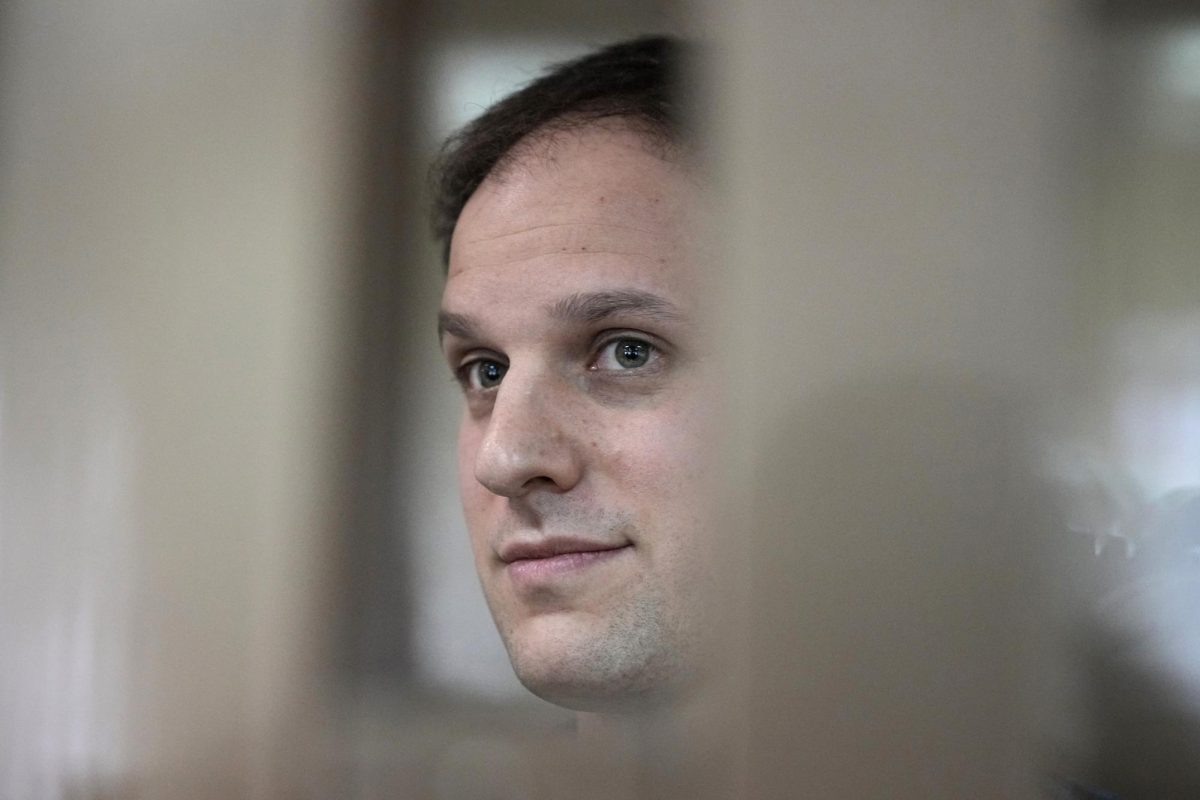March 29 marked one year since the detainment of Wall Street Journal reporter Evan Gershkovich by Russian officials. The journalist, who has covered Russian news since 2017, faces criminal charges of espionage. If found guilty, he could face up to 20 years in a Russian prison. Despite continuous remarks from the WSJ that Gershkovich was simply a journalist doing his job and not a spy, along with various security check-ins by the Russian government, Gershkovich was bombarded. He was detained by Russian agents and charged, despite a lack of evidence for such allegations.
According to NPR, “The Russian government insisted Gershkovich was guilty of espionage charges — without providing any evidence. Instead, they saw his journalist status as possible proof of his guilt.”
In order to maintain the sanctity of freedom of press and create a global society where journalists and citizens can speak freely, we must seek to respect press freedoms at all times. In the Universal Declaration of Human Rights, freedom of expression — and by default, freedom of the press — is considered a universal human right. Many countries freely allow journalists to investigate and report on the happenings of their nation, but some governments continue to push back against the free press.
Regardless, harming or killing a journalist in conflict situations is a direct violation of UN Security Council Resolution 1738. The resolution states that the UNSC:
“1. Condemns intentional attacks against journalists, media professionals and associated personnel, as such, in situations of armed conflict, and calls upon all parties to put an end to such practices;
- Recalls in this regard that journalists, media professionals and associated personnel engaged in dangerous professional missions in areas of armed conflict shall be considered as civilians and shall be respected and protected as such, provided that they take no action adversely affecting their status as civilians.”
In the midst of the Russia-Ukraine war, Gershkovich was taken and charged against international standards set by the UN. While it does not appear as if he was hurt, Gershkovich was in no way treated as a citizen would be. Rather, his journalist title marked him as a criminal in the eyes of the Russian government, who have yet to provide conclusive evidence to their allegations.
Gershkovich’s story underscores the importance of press freedoms and how the imprisonment and maiming of journalists does little to further peace. Upholding these freedoms not only protects individual rights but also strengthens the foundations of democracy and accountability worldwide.
As of April 4, 2024, 95 journalists and media workers have been confirmed dead in the midst of the war in Gaza. Another 16 are injured, four are missing and 25 have been arrested. These numbers do not include the other journalists worldwide who, like Gershkovich, have been arrested, killed or injured simply due to their press passes and vests.
In 2024 thus far, there are 19 confirmed journalist deaths — 18 in Gaza and another in Myanmar — and 65 total missing, predominantly in Mexico. Throughout 2023, there were 230 journalists arrested, primarily in the Middle East but with China, Myanmar and Belarus leading the count exponentially.
These statistics stand as a stark reminder that we must protect press freedoms worldwide. With reporters acting as guardians of expression and democracy, it is the duty of the world to defend press freedoms to ensure that journalists continue to help hold elites and governments accountable.


